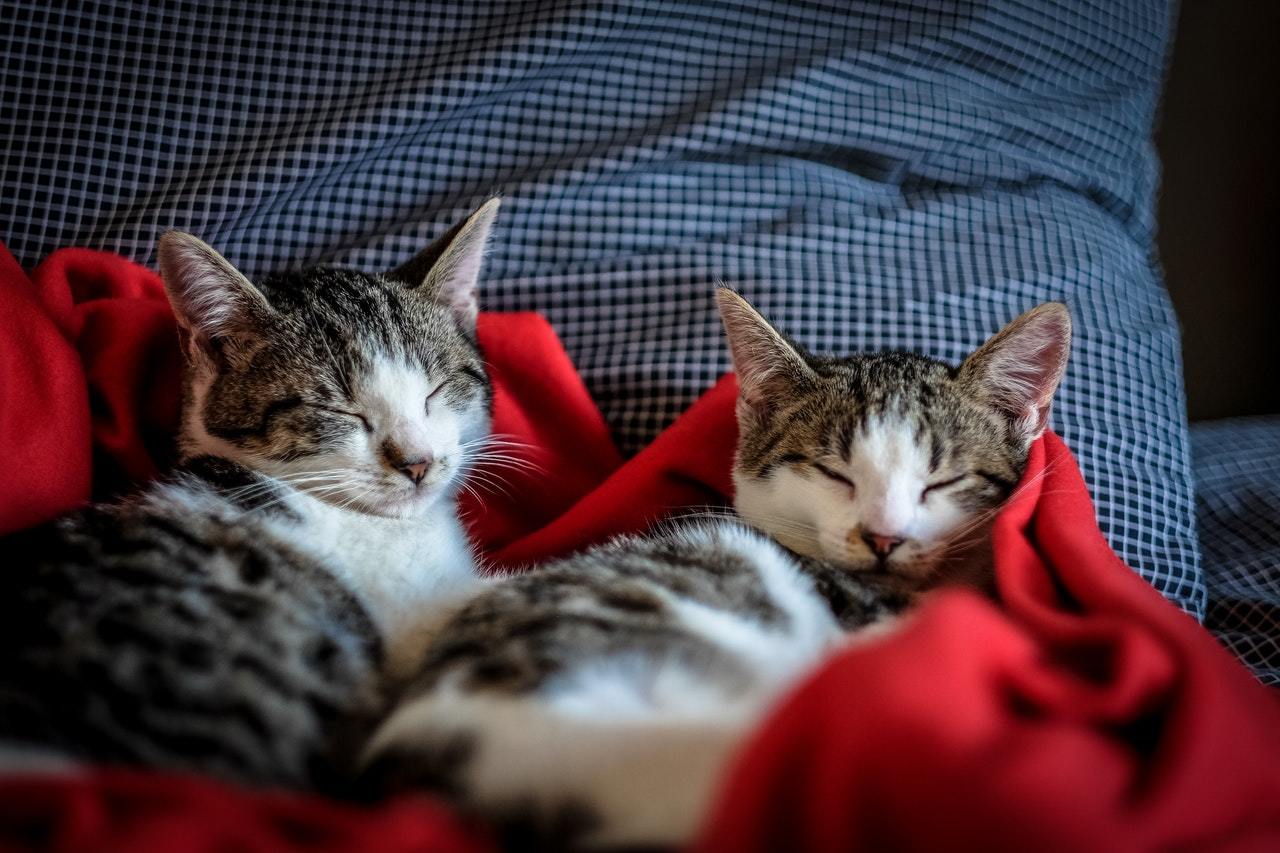Miscarriage in Cats: Symptoms, Causes, and Treatments

Pregnancy and the act of giving birth can present with complications in any living being. From the simplest form of reproduction, a single-celled organism dividing into two, to the more complex form of reproduction in mammals, the act of live birth, anything can go wrong. The risk of reproductive complications is higher for living beings whose sole existence is in the wild, however, the potential risk is also present in domesticated creatures, which includes our pets. Even pets, who are well-cared for, fed the highest quality diets, go in for regular vet visits, and are monitored by their pet parents, can experience problems during pregnancy and giving birth. This article addresses one particular complication, miscarriage, in one particular species of domesticated animals/household pets, our beloved furry friend the cat.
Are you concerned about your pet?
Book a video consultation with an experienced veterinarian within minutes.
- Professional vet advice online
- Low-cost video vet consultations
- Open 24 hours a day, 365 days a year
What is a miscarriage?
The standard definition of miscarriage is the expulsion of a fetus before it can survive independently from its host, the mother. Miscarriage is also known as spontaneous abortion.
Miscarriage in cats can occur at any time during the pregnancy and can be separated into two categories:
1. Those occurring during the first half of pregnancy, up to 45 days into gestation
2. Those occurring in the later stage of pregnancy, from 45 days into gestation until the due date.
When a miscarriage occurs during the first 45 days of pregnancy, it is often undetected in the majority of cases. There are no visible clinical signs or abnormalities. The embryo, or multiple embryos, is reabsorbed by the mother’s body. No expulsion or anything that resembles giving birth occurs. In some cases, one or more embryos can be reabsorbed while other embryos remain alive, continue to develop in a healthy manner, go to term, and enter the world through the normal birthing process.
You might find yourself asking “then how will I know if my cat has had a miscarriage in the early stage of her pregnancy?” The answer is unless a pregnancy check, by way of an abdominal ultrasound, was performed earlier in the pregnancy, then repeated later in the pregnancy or close to the due date, you may never know. The mother cat will usually act as if nothing ever happened.
Unfortunately, this may not be the case when the miscarriage occurs in the later stage of pregnancy, 45 days to due date. During this time, the mother cat could carry the pregnancy to term and give birth to stillborn kittens. The mother cat may be near term or at the due date but show no signs of labor or giving birth as the deceased fetus’ body has been walled off in her uterus by a protective membrane. This particular scenario often requires an emergency C-section to remove the deceased fetus or multiple fetuses. Miscarriage in the later stage of pregnancy most often does not occur undetected. The mother cat will be showing signs that something is wrong.
What causes a miscarriage in cats?
The most common cause of miscarriage in cats is some form of infection. The most common form of infection is viral. Female cats affected by Feline Leukemia Virus (FELV), Feline Immunodeficiency Virus (FIV), Feline Herpes Virus (FHV), or Feline Infectious Peritonitis Virus (FIP) are at a much higher risk of miscarriage than female cats who are not. Bacterial infection, particularly in female cats affected by Chlamydia, can be another common cause of miscarriage.
Less common causes of infection include parasitic disease, primarily Neospora Caninum (however more common in dogs), and fungal disease. Changes in the hormonal balance of the mother cat or hormonal abnormalities can be another cause of miscarriage.
Progesterone, a hormone secreted by the ovaries, is responsible for maintaining pregnancy. The hormone functions in keeping the uterus “quiet,” so as not to trigger premature uterine contractions, and allows the fetus or multiple fetuses to grow and develop. The hormone also functions in the capacity of preventing the mother cat’s immune system from seeing the developing fetus as “foreign” to the body and, therefore, prevents the immune system from attacking and rejecting the fetus. Low levels of progesterone can trigger a spontaneous abortion, i.e. miscarriage.
Less common causes of miscarriage in cats include other internal problems with the mother cat or the placenta, abnormalities associated with the fetus, trauma, injury, in-breeding, nutritional deficiencies, or severe stress.

How will I know if my cat is having a miscarriage?
As stated earlier in this article, if the miscarriage occurs in the earlier stage of pregnancy, it may slip past you undetected. This scenario occurs in the majority of cases. In miscarriages occurring in the later stage of pregnancy, the majority of cats are showing some form of visible signs.
These signs include some type of vaginal discharge. Extended, chronic vaginal bleeding is the most common type of discharge seen. Cats are quite fastidious and skilled at cleaning up personal messes before the humans detect anything, however, with the chronic nature of the vaginal bleeding usually seen with miscarriage, it is often difficult for the most attentive cat to stay one step ahead of it. The vaginal bleeding will be fairly easy to detect. Other types of vaginal discharge include pus-like, green, brown, or black fluids.
Additional clinical signs or symptoms of miscarriage include fever, abdominal pain, lethargy, anorexia, showing signs of distress such as labored breathing, or labor, delivery, and stillbirth.
What do I do if I suspect my cat is having a miscarriage?
If you suspect your momma cat has had or is having a miscarriage, seek immediate emergency medical attention, either through your primary care vet or a local emergency veterinary hospital.
An abdominal ultrasound is the best diagnostic tool for detecting miscarriage. This form of testing is highly preferred over abdominal x-rays, as x-rays are less accurate in detecting this type of medical condition. The vet may recommend checking your cat’s progesterone level to see if it is low, however, this type of testing usually requires an outside lab and will not provide the immediate results often needed in an emergency situation.
Blood work, to evaluate the mother cat’s major organ function and to screen for internal infection, can and should be performed, however, it cannot either confirm or rule out a miscarriage. If a C-section must be performed, testing of the mother (performing a culture of her vaginal fluid) and/or the deceased fetus (autopsy and biopsy of fetal tissues) can be done not only to obtain information as to the cause of the miscarriage but to also possibly provide a guide to preventative measures for future pregnancies.

How is miscarriage in cats treated?
Treatment of miscarriage in cats is dependent on the condition of the mother cat and the circumstances of her pregnancy, i.e. intentional breeding or accidental breeding. If intentionally bred and the mother cat develops a fever during her pregnancy and without medical intervention a miscarriage may occur, intravenous fluids and antibiotics may help prevent the miscarriage or at least minimize the risk of serious complications.
If a hormonal imbalance is found, supplementing the mother cat with progesterone may prevent miscarriage. Progesterone therapy often involves daily dosing up to just before the due date. An emergency C-section, with preservation of the reproductive organs, is also a treatment option, depending on the circumstances. If accidentally bred, with no plans for future breeding for the mother cat, a C-section with spay surgery is the best option.
How do we prevent miscarriage in cats?
Unfortunately, no form of preventative care guarantees zero risk of miscarriage. For those female cats, who are not going to be intentionally bred, spaying at or close to six months of age (before the first heat cycle) is the best preventative medicine. For those female cats, who are going to be used for breeding purposes, blood work to evaluate major organ function, thorough screening for viral, bacterial, and protozoal diseases, monitoring progesterone levels, formulating a high-quality nutritional plan, and, generally, working closely with your primary care vet can minimize the risk of miscarriage.

When to Contact a Vet
If you know or suspect your female cat is pregnant, is acting like something is wrong, and you need medical advice to help guide your next course of action, schedule a video consultation to speak with one of our highly skilled vets or visit your primary care vet right away.
Read more:
6 Complications to Look Out for After Your Cat Gives Birth
Understanding Cat Pregnancy and Birth
Need to speak with a veterinarian regarding your cat’s pregnancy, miscarriage, or another condition?
Click here to schedule a video consult to speak to one of our vets. You can also download the FirstVet app from the Apple App Store and Google Play Stores.
More articles about Cat
Are you concerned about your pet?
Book a video consultation with an experienced veterinarian within minutes.